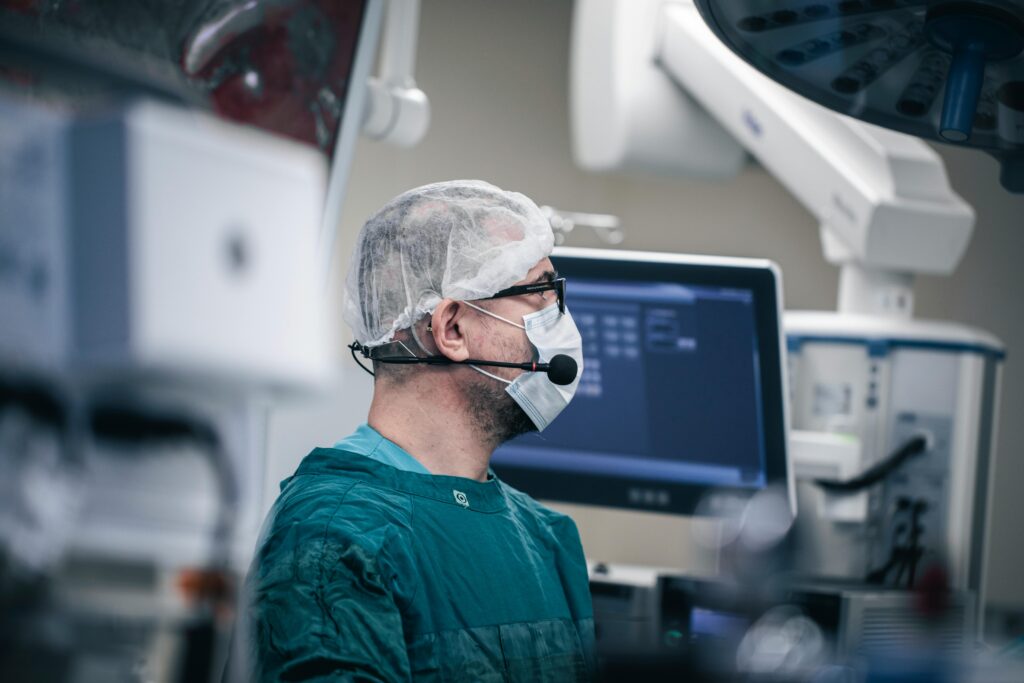Transforming Healthcare with Advanced Technology
“Delighting Patients Through Exceptional Care and Innovative Digital Solutions”
In today’s rapidly evolving healthcare landscape, the pressure on providers has reached unprecedented levels. With patient expectations rising and the complexity of medical services increasing, delivering not only exceptional care but also maintaining seamless operational efficiency has become a critical necessity. At HMD Technical Services, we are driven by the vision of transforming healthcare through cutting-edge technology. Our innovative solutions empower healthcare providers to streamline their operations, reduce administrative burdens, and focus on what matters most—improving patient outcomes. This case study explores how we collaborated with a leading multi-specialty hospital to address significant operational and patient care challenges by harnessing advanced technology. From automating routine tasks to enhancing patient engagement and enabling data-driven decision-making, our solutions revolutionized the hospital’s approach to healthcare delivery, setting a new benchmark for excellence in the industry.

Challenges
Despite their commitment to quality, the hospital encountered several key challenges that impacted its operations and patient care:- Manual Processes: Many administrative tasks, such as patient data entry, billing, and appointment scheduling, were performed manually. This not only led to inefficiencies but also increased the likelihood of human errors, which could negatively affect patient care.
- Fragmented Data Management: The hospital struggled with siloed patient records across various departments. This fragmentation made it difficult for healthcare providers to access comprehensive patient information quickly, hindering timely decision-making and coordinated care.
- Patient Engagement Issues: Patients often experienced long wait times for appointments and received insufficient communication regarding their health status or upcoming appointments, leading to frustration and decreased satisfaction.
- Regulatory Compliance: The hospital needed to ensure compliance with stringent healthcare regulations while managing sensitive patient data, which added an additional layer of complexity to their operations.
Solutions Provided
To tackle these challenges head-on, HMD Technical Services implemented a suite of advanced technology solutions tailored to the unique needs of the hospital:
1. Robotic Process Automation (RPA)
We deployed RPA to automate repetitive administrative tasks, such as:
- Patient Data Entry: Automation reduced the time taken to enter patient information into electronic health records (EHR), minimizing errors and ensuring accuracy.
- Billing Processes: Streamlined billing operations, allowing the hospital to process claims more efficiently, thus improving cash flow and reducing delays.
2. Artificial Intelligence (AI)
Our AI-driven solutions were designed to enhance patient care and operational efficiency:
- Predictive Analytics: Implemented AI algorithms to analyze patient data and identify potential health risks, enabling healthcare providers to intervene earlier and tailor treatment plans.
- Clinical Decision Support: AI tools provided real-time insights to physicians, aiding in diagnosis and treatment decisions, which improved patient outcomes.
3. Cloud Solutions
We facilitated the migration of the hospital’s data to a secure cloud platform, offering:
- Real-Time Access to Patient Records: Healthcare providers gained immediate access to comprehensive patient records, enabling better coordination of care across departments.
- Enhanced Data Security: Cloud solutions ensured that sensitive patient information was securely stored and easily retrievable, aligning with regulatory compliance requirements.
4. Patient Engagement Portal
To enhance patient interaction and satisfaction, we developed a user-friendly mobile and web application that:
- Streamlined Appointment Scheduling: Patients could book and manage their appointments easily, reducing wait times and improving the overall patient experience.
- Real-Time Communication: The portal enabled secure messaging between patients and healthcare providers, ensuring timely responses to inquiries and enhancing patient engagement.
Implementation Timeline
Phase 1: Assessment and Planning (Month 1)
- Conducted an in-depth analysis of the hospital’s existing processes and identified key pain points.
- Collaborated with hospital stakeholders to develop a comprehensive implementation strategy tailored to their needs.
Phase 2: Solution Deployment (Months 2-4)
- Rolled out RPA solutions for administrative tasks and integrated AI tools for predictive analytics and decision support.
- Initiated the migration of patient data to a secure cloud environment, ensuring minimal disruption to ongoing operations.
Phase 3: Patient Engagement Enhancement (Months 5-6)
- Launched the patient engagement portal, allowing for seamless appointment scheduling and communication between patients and staff.
Phase 4: Monitoring and Optimization (Month 7)
- Closely monitored the performance of implemented solutions, gathering feedback from hospital staff and patients to identify areas for continuous improvement.
